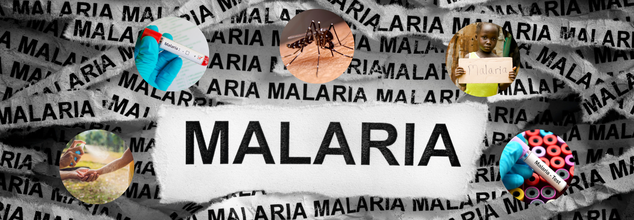- Health Conditions A-Z
- Health & Wellness
- Nutrition
- Fitness
- Health News
- Ayurveda
- Videos
- Medicine A-Z
- Parenting
- Web Stories

Credits: Canva
Common Medicines 'In Your Cabinet' Are Putting Your Heart At High Risk
Our medicine cabinets are stocked with a combination of prescription medications, over-the-counter painkillers, antidepressants, and supplements—all designed to keep us healthy but new research is now revealing an important and overlooked reality that some of the most widely used medications might be harming us more than they're helping, particularly when it comes to your blood pressure and heart health.
High blood pressure—or hypertension—affects over 1 billion people globally, and it’s one of the biggest risk factors for heart disease, stroke, and premature death. Yet, despite taking medications that are designed to manage it, many patients continue to struggle with uncontrolled blood pressure levels. Why? Experts are beginning to suspect that the answer might lie in a surprising culprit, the other medications we’re taking at the same time.
A new study by University of Pennsylvania researchers, reported in Hypertension Research, shows how widely used blood pressure medications might actually disrupt a critical heart-protective enzyme known as ACE2. And that's not all—other popular medications such as NSAIDs (say ibuprofen), antidepressants, steroids, and even decongestants might also be quietly jacking up blood pressure in millions of people without alerting them.
Cardiovascular disease is still the major killer globally, and high blood pressure—or hypertension—is a big contributor. Estimated to afflict more than a billion individuals worldwide, the hypertension burden is particularly crushing in low- and middle-income nations. Even with the universal availability of prescription drugs, many patients still struggle with uncontrolled blood pressure. Increasing evidence now implies that the very drugs we trust—prescription and over-the-counter—may be stealthily sabotaging cardiovascular health.
Could Your Blood Pressure Medications Be Damaging Your Heart?
Recent research indicates that most widely prescribed drugs can get in the way of blood pressure control. One in five hypertensive adults may be taking drugs that increase blood pressure, yet unaware of this.
From over-the-counter analgesics to antidepressants and oral steroids, the roll call of offenders is long. NSAIDs such as ibuprofen, some antidepressants, corticosteroids, decongestants, and even some oral contraceptives have all been shown to raise blood pressure levels. This poses very serious questions about how polypharmacy—taking several medications simultaneously—is likely to impact long-term cardiovascular health.
Experts point out, even moderate rises in blood pressure can contribute to major consequences on heart disease and stroke susceptibility. We should be more observant regarding reviewing medication, particularly in older populations who are already at risk.
ACE inhibitors (ACEIs) and angiotensin receptor blockers (ARBs) are widely used to manage hypertension by acting on the renin-angiotensin system (RAS). But research in Hypertension Research by researchers at the University of Pennsylvania brings new understanding to a crucial part of the puzzle: the ACE2 enzyme.
ACE2 performs a dual function—it both regulates blood pressure and is cardioprotective. It metabolizes angiotensin II, a strong vasoconstrictor, to angiotensin 1–7, which is a vasodilator and decreases blood pressure.
Dr. Henry Daniell and colleagues discovered that in companion animals already on ACEIs or ARBs, supplementing with oral ACE2 (administered through a new plant-based system) produced startling and alarming outcomes. Certain ACE inhibitors seemed to block the action of the ACE2 enzyme, essentially negating the therapeutic advantage of its supplementation. ARBs, on the other hand, appeared to enlarge the pool of angiotensin II—exactly what hypertensive patients try to escape.
Not all the ACE inhibitors reacted in a similar way. One of the most commonly prescribed medications in America, lisinopril, caused the smallest level of ACE2 inhibition and potentially could be considered a safe one for sustained cardiovascular support.
"You don't want to block ACE2, and you don't want to add to the angiotensin II pool. And we saw both there," explained Daniell.
ACE2 has been under the limelight ever since the COVID-19 pandemic, as the virus exploits this enzyme to gain entry into human cells. The inhibition of ACE2 by some blood pressure drugs eerily resembles what scientists witnessed in the initial stages of the pandemic.
Dr. Daniell and his colleagues are currently pursuing FDA approval to test their plant-based delivery system for ACE2 in humans, the first FDA-approved human blood protein expressed in plant cells to move into clinical trials. Their research may open the door to a new generation of cardiopulmonary therapies that are safer, more targeted, and possibly more effective.
Are You Taking a Medication That's Raising Your BP?
A concerning 19% of individuals with high blood pressure take at least one drug that has been shown to increase blood pressure, with women faring worse (24% vs. 14% of men). Sometimes the problem isn't the high blood pressure—it's the additive effect of too many drugs with overlapping actions.
Health experts are now advocating for a more cautious, individualized approach. Rather than simply increasing the dose or number of medications, doctors are exploring “deprescribing” as a strategy—removing or replacing drugs that may be doing more harm than good.
Natural Ways to Manage High Blood Pressure
If you’re worried about your heart health or want to complement your existing treatment, there are natural ways to support healthy blood pressure:
1. Follow a DASH Diet
Fruits, vegetables, whole grains, and low-fat dairy foods are the mainstays of the clinically tested Dietary Approaches to Stop Hypertension (DASH) diet, which lowers blood pressure.
2. Reduce Sodium
Cutting back on salt to less than 2,300 mg/day can make a quantifiable impact on your blood pressure level.
3. Boost Potassium
Bananas, spinach, avocados, and sweet potatoes are great sources of potassium, which counteracts sodium.
4. Get Moving
Try for at least 30 minutes of moderate exercise (such as brisk walking) five days a week. Regular exercise makes your heart stronger and boosts circulation.
5. Stay at a Healthy Weight
Even a small amount of weight loss can help reduce blood pressure in overweight people.
6. Reduce Stress
Recurring stress is a well-known cause of hypertension. Methods such as deep breathing, meditation, yoga, or even daily hobbies can reduce stress greatly.
7. Reduce Alcohol and Stop Smoking
Both tobacco and alcohol can raise blood pressure and harm your cardiovascular system. Reducing or stopping them all together has great heart health rewards.
While new research is still coming out, the connection between medications and heart health is becoming more intricate than originally realized. Whether you're dealing with hypertension or just want to shield your heart, it's important to examine all medications—both prescription and over-the-counter—and stay up to date regularly.

Credits: Canva
World Malaria Day 2025: Theme, History, And Significance
Every year on 25 April, World Malaria Day is observed to raise awareness about one of the deadliest yet preventable diseases. As per the World Health Organization (WHO), there were 263 million malaria cases and 5,97,000 malaria deaths across 83 countries in 2023. The WHO African Region carries a disproportionately high share of the global malaria burden. As per the numbers, this Region was home to 94% of the malaria cases, accounting for 246 million and 95% of malaria deaths. Children under 5 accounted for about 75% of all malaria deaths in the Region.
Ahead of World Malaria Day, WHO also called for renewed efforts at all levels - from global policy to community action to accelerate progress towards eliminating malaria.
World Malaria Day 2025 Theme
This year, WHO has joined the RBM Partnership to End Malaria and other partners in promoting: "Malaria Ends With US: Reinvest, Reimagine, Reignite". This is a grassroot campaign that aims to re-energize efforts at all levels, from global policy to community action, to accelerate progress towards malaria elimination.
World Malaria Day History
World Malaria Day was first celebrated internationally in 2008, building upon the earlier "Africa Malaria Day", which had been observed b African countries since 2001. The date, April 25, was established by WHO in 2007 during the World Health Assembly. In 2007, it was the 60th session of the World Health Assembly where the proposal to rename Africa Malaria Day to World Malaria Day was made to acknowledge the global presence of malaria.
World Malaria Day Significance
The day has a strong significance in healthcare as it brings attention to the disease that still continues to take so many lives, especially in low-income and tropical regions. It also serves as an important reminder to continue spreading awareness about the disease as well as promoting its prevention, treatment and continuous international cooperation to fight against it.
What Is Malaria?
The WHO describes malaria as a life-threatening disease spread to humans by some types of mosquitoes, mostly found in tropical countries. However, they are preventable and curable.
WHO notes: "Malaria is spread to people through the bites of some infected anopheles mosquitoes. Blood transfusion and contaminated needles may also transmit malaria. The first symptoms may be mild, similar to many febrile illnesses, and difficult to recognize as malaria. Left untreated, P. falciparum malaria can progress to severe illness and death within 24 hours.
There are 5 Plasmodium parasite species that cause malaria in humans, and 2 of these species – P. falciparum and P. vivax – pose the greatest threat. P. falciparum is the deadliest malaria parasite and the most prevalent on the African continent. P. vivax is the dominant malaria parasite in most countries outside of sub-Saharan Africa. The other malaria species which can infect humans are P. malariae, P. ovale and P. knowlesi."
What Are The Symptoms?
The early symptoms are fever, headache and chills, which can usually start within 10 to 15 days of getting bitten by an infected mosquito.
Some types of malaria can cause severe illness and death. Infants, children under 5 years, pregnant women, travellers and people with HIV or AIDS are at higher risk. Severe symptoms include:
- extreme tiredness and fatigue
- impaired consciousness
- multiple convulsions
- difficulty breathing
- dark or bloody urine
- jaundice (yellowing of the eyes and skin)
- abnormal bleeding

Credit: Canva
Blood Test That Can Detect 12 Types Of Cancer To Go On Trial In UK
A new AI-powered blood test that can detect 12 types of cancer is to be tested on NHS patients. Using this test, experts would now be able to detect cancerous cells in people much before the symptoms appear. The trial, conducted on 8,000 patients, will analyse blood samples for tiny fragments of genetic material released by tumours.
The test called miONCO-Dx, was created using data from 20,000 patients. Initial tests have produced promising results, having shown that it can detect 12 of the most lethal and common cancers, including bowel cancer, at an early stage, with over 99% accuracy. With no other trial currently working in the same way, this is a world-leader and will support in placing Britain at the forefront of revolutionising healthcare. Notably, the UK government has awarded £2.4m to run the trial of the genetic test, which was developed by the University of Southampton and the biotech startup Xgenera.
How Does It Work?
The test was created by Xgenera, in collaboration with the University of Southampton. As little as 10 drops of blood are all that's needed to detect up to 12 common cancers. The test works by measuring the microRNA in a blood sample and using AI to identify if cancer is present and, if so, where it is located in the body.
What Cancers Will It Detect?
Lung, gastric, prostate, oesophageal, liver, bladder, ovarian, bowel, pancreatic and breast cancers–as well as bone and soft tissue sarcoma and a type of brain tumour. The Department of Health said the test was now ready for the "validation and verification" stage.
Professor Sir Stephen Powis, NHS England's national medical director, said: "This blood test has the potential to help us detect bowel cancer earlier and reduce the need for invasive tests, and the next step in this trial will now be vital in gathering further evidence on its effectiveness and how it could work in practice."
How Is A Blood Test Conducted?
A blood test is a simple medical procedure used to check various health conditions. Here's how it is typically conducted:
1. Preparation: Depending on the test, you may be asked to fast for 8–12 hours. The healthcare provider will explain any specific instructions.
2. Collection: You’ll usually be seated or lying down. A healthcare professional will tie a tourniquet around your upper arm to make the veins more visible. The inside of your elbow is the most common site for drawing blood.
3. Cleaning: The area is cleaned with an antiseptic to reduce the risk of infection.
4. Drawing Blood: A sterile needle is inserted into the vein, and blood is collected into one or more vials or tubes.
5. Post-collection: Once enough blood is collected, the needle is removed, and a cotton ball or bandage is applied to stop any bleeding.
6. Processing: The blood samples are then sent to a lab for analysis.

Credits: Canva
Novavax Says FDA Approval Back on Track for Its COVID Vaccine
Novovax, the maker of the only protein-based COVID-19 vaccine available in the US announced that its shot is on track for full approval from the US Food and Drug Administration (FDA). It is an important development for the company. It has sent its stock soaring up to 21% on Wednesday morning for trading. It is said that this will also ease the fears of political interference that may have caused delay in the process.
Vaccine For Emergency Use Only
While the other mRNA vaccines from Pfizer and Moderna have received full FDA approval for specific age groups, Novovax's vaccine still awaits the approval. It is only authorized for emergency use.
The emergency use authorization or the EUA allows vaccines to be distributed during public health emergencies. However, once the emergency ends, the FDA can remove them from the market unless full approval is granted.
Why Did The Delay Happen?
The FDA originally planned to approve Novovax's vaccine by April 1. However, as per the inside sources, the process was paused at the direction of Dr Sara Brenner, the FDA's acting commissioner. The delay has also raised concerns, especially after Dr Peter Marks, the FDA's longtime vaccine chief, reportedly left his post due to disagreements with the Health Secretary Robert F Kennedy Jr, who is a known vaccine skeptic.
What Makes Him A Vaccine Skeptic?
In the past, RFK Jr. has worked closely with many anti-vaccine activists who work for his nonprofit group Children's Health Defense. While in his recent speech, he said that he has "never been anti-vax and have never told the public to avoid vaccination", his track record shows otherwise.
In a podcast interview, he said, "There is no vaccine that is safe and effective" and told FOX News that he still believes in the now long-debunked idea that vaccines can cause autism. In another 2021 podcast, he urged people to "resist" CDC guidelines on getting their kids vaccinated. "I see somebody on a hiking trail carrying a little baby and I say to him, better not get them vaccinated," he said.
His non-profit also led an anti-vax campaign sticker and he appeared next on the screen to a sticker that read: "If you are not an anti-vaxxer you are not paying attention," reports AP.
What Does The Vaccine Need For Approval?
The FDA recently asked Novavax to outline a plan to collect additional clinical data from people who have received the vaccine. Novavax says it is “engaging with the FDA expeditiously” and hopes to secure full approval as soon as possible. Full FDA approval is considered the gold standard, as it reflects a higher level of scrutiny and confidence in a product’s safety and effectiveness.
How Is This Vaccine Different From Others?
The COVID-19 vaccines that are currently available in the US teach the immune system to recognize the virus' spike protein, which is its outer coating. the Pfizer and Moderna's mRNA vaccine deliver genetic instructions that help the body create a temporary version of spike protein that trigger an immune response. In contrast, the Novovax's shot contains lab-grown copies of the spike protein itself, which are then combined with a substance that boosts the immune response.
This traditional approach—called a protein-based vaccine—has been used for decades in vaccines for diseases like hepatitis B and shingles. For people who are hesitant about mRNA vaccines, Novavax offers an alternative that uses a well-established method.
© 2024 Bennett, Coleman & Company Limited

